Are you struggling to connect your online store with all the other platforms and apps your business relies on?
As e-commerce brands expand and the complexity of digital sales grows, choosing the right integration platform can mean the difference between seamless automation and constant workflow bottlenecks. E-commerce integration tools aren’t just add-ons; they’re mission-critical tools for syncing your sales channels, automating repetitive tasks, and ensuring your customer experience stays fast, reliable, and consistent.
In this blog, discover the top 10 e-commerce integration platforms of 2025 and learn how the right solution, like E-commerce App Development, can transform your business operations, drive efficiency, and fuel scalable growth in today’s omnichannel e-commerce world.
Types Of E-Commerce Integrations
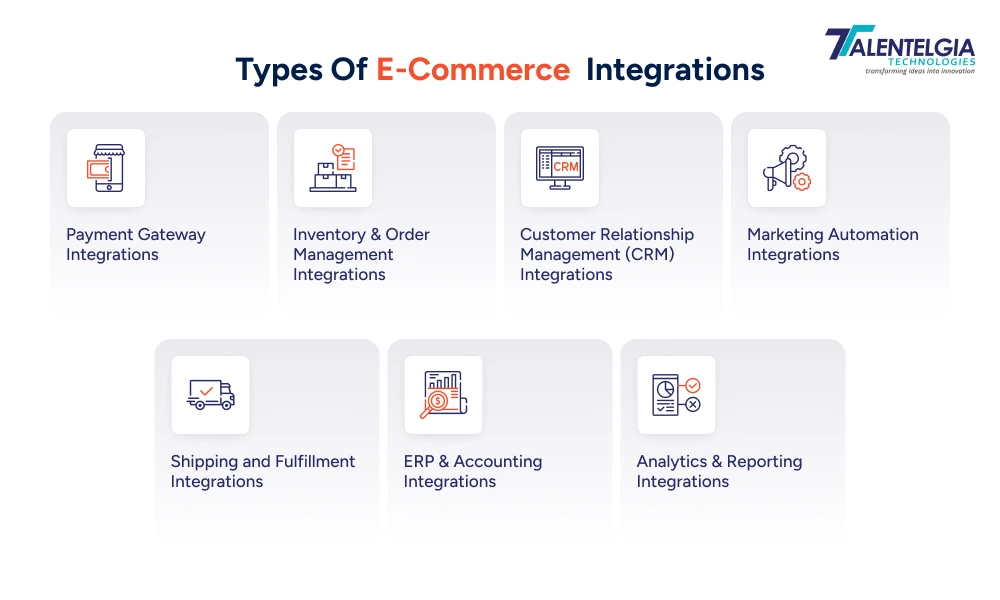
Before diving into the tools, it’s important to understand that eCommerce integrations come in several forms, each designed to connect a different part of your business ecosystem. From payments and marketing to logistics and analytics, these integrations ensure that your online store operates as one seamless unit rather than a collection of disconnected tools. Here’s a breakdown of the most essential types of eCommerce integrations every modern online business should consider:
1. Payment Gateway Integrations
A payment gateway integration is one of the first essentials for any e-commerce business. It allows your store to accept multiple payment methods, from credit and debit cards to digital wallets like Apple Pay or Google Pay.
Integrating a reliable payment gateway ensures smoother checkout experiences, fewer cart abandonments, and global accessibility. Whether you use Shopify, WooCommerce, or Magento, this integration helps you maintain PCI compliance and secure transactions.
Key Benefits:
- Fast and secure online payments
- Global payment method support
- Automatic transaction management
- Easy refunds and invoicing
Examples: PayPal, Stripe, Square, Amazon Pay
2. Inventory & Order Management Integrations
Keeping track of stock manually can lead to errors and delays. Inventory management integrations automate the process by syncing product quantities in real-time across sales channels.
They also prevent overselling or stockouts and connect directly with suppliers for automatic restocking. For growing stores, integrating an order and inventory system improves visibility, reduces manual work, and enhances customer satisfaction.
Key Benefits:
- Real-time stock tracking
- Automated replenishment alerts
- Supplier and warehouse integration
- Multi-location inventory control
Examples: Cin7, Brightpearl, DEAR Inventory, Skubana
3. Customer Relationship Management (CRM) Integrations
CRM integrations connect your eCommerce platform with customer data tools to help you understand, engage, and retain your audience.
By syncing purchase history, communication logs, and behavior analytics, CRM tools allow you to personalize marketing, automate follow-ups, and improve customer satisfaction. It’s a must-have for businesses that value long-term relationships over one-time sales.
Key Benefits:
- Centralized customer profiles
- Lead tracking and segmentation
- Automated sales and email workflows
- Improved customer retention rates
Examples: Salesforce, HubSpot, Zoho CRM, Pipedrive
4. Marketing Automation Integrations
Marketing automation is one of the most impactful eCommerce integrations for driving revenue. It helps you send personalized emails, nurture leads, and launch targeted campaigns without manual intervention.
You can set up automated workflows like abandoned cart recovery, welcome sequences, or post-purchase follow-ups, all powered by customer behavior and AI-driven analytics.
Key Benefits:
- Behavior-based targeting
- Automated email and SMS campaigns
- Multi-channel advertising
- AI-powered personalization
Examples: Mailchimp, Drip, Klaviyo, ActiveCampaign
5. Shipping and Fulfillment Integrations
Shipping and logistics integrations streamline the post-purchase process by automating order processing, label creation, and shipment tracking.
Instead of switching between carriers, you can manage everything in one dashboard — saving time and ensuring accurate deliveries. For global eCommerce stores, these integrations simplify customs, taxes, and shipping rates automatically.
Key Benefits:
- Automated shipping label generation
- Real-time tracking updates
- Multi-carrier rate comparison
- Seamless order management
Examples: ShipStation, Easyship, Shippo, Printful
6. ERP & Accounting Integrations
For fast-scaling eCommerce businesses, integrating ERP and accounting software is critical. ERP (Enterprise Resource Planning) integrations connect your store’s backend, inventory, orders, and finances with a central management system.
This ensures accuracy across all departments and gives you real-time insights into revenue, expenses, and supply chain performance. It’s ideal for growing brands that handle bulk orders or operate across multiple channels.
Key Benefits:
- Unified business data visibility
- Streamlined accounting and bookkeeping
- Real-time financial reporting
- Supply chain and order management
Examples: SAP Business One, NetSuite, QuickBooks, Xero
7. Analytics & Reporting Integrations
If you can’t measure it, you can’t improve it. Analytics integrations help you monitor your store’s performance, customer journey, and campaign effectiveness in real time.
They bring together sales, traffic, and behavior data, empowering you to make data-driven decisions and fine-tune your marketing strategies for higher ROI.
Key Benefits:
- In-depth sales and traffic insights
- Conversion rate tracking
- Real-time dashboards
- Custom performance reports
Examples: Google Analytics, Mixpanel, Adobe Analytics, Matomo etc.
Top Marketing Automation Tools for E-Commerce
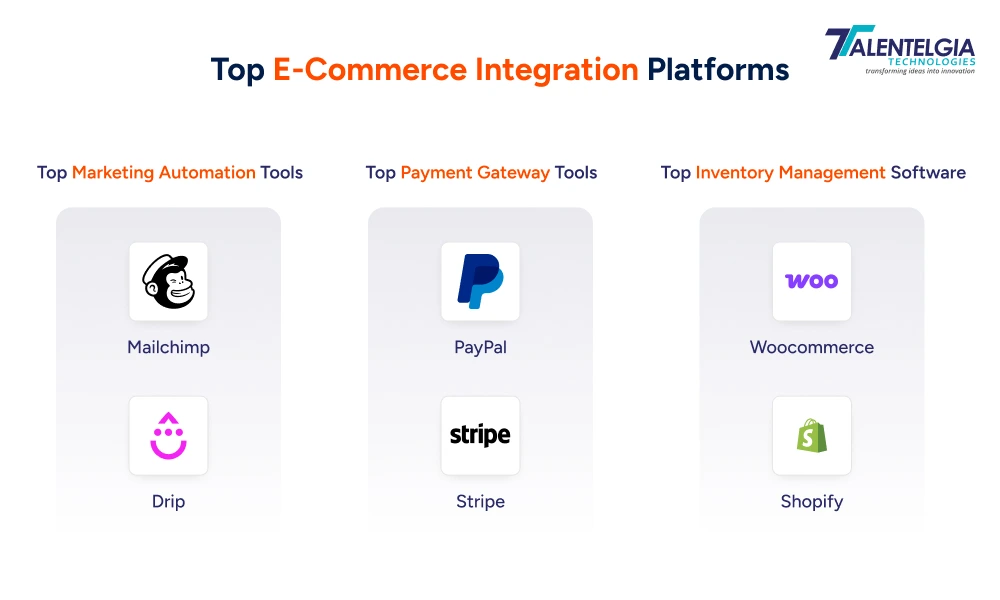
1. Mailchimp
Mailchimp is a leading all-in-one marketing, email, and eCommerce automation platform that helps businesses grow their audience and boost conversions. Known for its intuitive interface and robust features, it allows you to create, manage, and automate campaigns that truly resonate with your customers.
With Mailchimp’s app integrations, you can easily connect your online store, CRM, and analytics tools to streamline marketing efforts and track performance in one place. Its smart automation features make it simple to deliver personalized emails, segment audiences, and optimize engagement without constant manual effort.
Whether you’re running a small online shop or a large eCommerce business, Mailchimp provides the flexibility and automation power needed to scale effortlessly.
Key Features of Mailchimp
- Custom pop-up forms tailored to your brand’s identity
- Built-in analytics and AI tools to craft high-performing email campaigns
- Targeting and segmentation features to boost engagement
- eCommerce automation for personalized, timely email delivery
- Extensive Mailchimp app integrations with major eCommerce platforms and tools
Pricing of Mailchimp
- Premium — Best for Growing Teams
- $138/month for 12 months (Save 50%)
- Then $276/month
- Includes: Dedicated onboarding, unlimited contacts, and priority support
- Ideal for: Scaling teams that need advanced automation and expert assistance
Standard — Best Value
- $6.90/month for 12 months (Save 50%)
- Then $13.80/month
- Includes: Personalization, optimization tools, and enhanced automations
- Ideal for: Businesses ready to boost conversions
Essentials
- $4.60/month for 12 months (Save 50%)
- Then $9.20/month
- Includes: Testing, scheduling, and content delivery optimization
- Ideal for: Small teams and startups
Free Plan
- $0/month
- Includes: Basic email campaigns and contact insights
- Ideal for: Beginners exploring email marketing
2. Drip
Drip stands out as one of the best eCommerce integration tools designed to help businesses build meaningful customer relationships and increase revenue through automation. It empowers online stores to create high-performing, automated email campaigns, such as welcome sequences, post-purchase follow-ups, and abandoned cart recovery, without needing technical expertise.
What makes Drip powerful is its seamless ability to connect with over 100 platforms, including WooCommerce, Magento, and major CRM systems. This smooth ERP and eCommerce integration ensures that your store data, customer insights, and marketing workflows stay perfectly synchronized. As a result, businesses can make data-driven decisions and deliver more personalized, timely messages to their audience.
If you’re looking to streamline your marketing operations and turn visitors into loyal customers, Drip is a smart choice, combining simplicity, flexibility, and automation at its core.
Key Features of Drip
- Personalized messaging that converts leads into repeat buyers
- Forms and popups to capture and grow your email audience
- Ready-to-use templates for branded and professional email design
- Automated workflows to send messages at the right time, based on customer behavior
- Effortless syncing across ERP systems, eCommerce platforms, and social media channels
Pricing of Drip
- Free Trial: 14 days
- Paid Plans: Start at $39/month (for 2,500 people), pricing scales based on your contact list size
Top Payment Gateway Tools For E-Commerce
3. PayPal
PayPal remains one of the world’s most trusted and widely used online payment solutions, offering businesses a fast, secure, and reliable way to manage transactions. As one of the best eCommerce integration tools, PayPal allows businesses to seamlessly connect payment systems with leading eCommerce integration platforms like WooCommerce, Shopify, and BigCommerce, ensuring customers enjoy a smooth checkout experience from any device.
Beyond just payments, PayPal also simplifies financial operations with tools for billing, invoicing, and tax management. Its extensive compatibility with accounting, marketing, and eCommerce automation systems makes it an ideal solution for businesses that want to scale effortlessly while keeping finances in sync.
Key Features of PayPal
- Fast, secure checkout options, including QR code payments for in-person and online purchases
- Integrations with top eCommerce platforms like WooCommerce, Shopify, and BigCommerce
- Built-in accounting tools for billing, invoicing, inventory, and tax management
- Custom forms for receiving payments, collecting donations, and creating surveys
- Connectivity with major online marketplaces such as Etsy, eBay, and Storenvy
Pricing of PayPal
- PayPal offers varied transaction rates for both domestic and international payments, depending on volume and region.
4. Stripe
Stripe is one of the most popular and powerful online payment processors trusted by businesses worldwide. Known for its flexibility and developer-friendly APIs, Stripe enables seamless integration with leading e-commerce integration platforms like Shopify, WooCommerce, and Magento. It empowers businesses to accept payments, manage subscriptions, send payouts, and automate billing — all from one unified dashboard.
As one of the best eCommerce integration tools, Stripe simplifies eCommerce automation by handling everything from invoicing to fraud prevention. Whether you’re a startup or an enterprise, Stripe helps you streamline financial operations, automate recurring payments, and scale your digital business globally with ease.
Key Features of Stripe
- Issue both virtual and physical cards for business payments and expenses
- Integrated invoicing system to generate and send invoices instantly
- A radar feature to detect and prevent fraudulent transactions in real time
- Stripe Billing API for easy integration into websites, mobile apps, and CRM tools
- Automated tax calculator for domestic and international transactions
Pricing of Stripe
- Pay-as-you-go model: starts at 3% per transaction
- Enterprise plan: custom pricing available upon request
Top Inventory Management Software for E-Commerce
5. WooCommerce
WooCommerce is a powerful, open-source eCommerce plugin that seamlessly integrates with WordPress, transforming any website into a fully functional online store. Renowned for its flexibility and scalability, WooCommerce allows businesses to create tailored digital shopping experiences—whether for startups or large enterprises.
The platform’s open-source nature gives developers complete control over customization, making it an excellent foundation for implementing AI business solutions such as intelligent product recommendations, customer behavior analytics, and automated marketing workflows. By integrating WooCommerce with advanced AI integration services, businesses can enhance personalization, streamline operations, and improve sales performance through smarter insights.
With a vast ecosystem of free and premium extensions, WooCommerce adapts effortlessly to different business models—from retail and subscription-based services to bookings and memberships.
Key Features of WooCommerce
- Deep integration with WordPress for unified content and eCommerce management
- Supports all major payment gateways and comprehensive order/customer management tools
- Flexible product listing, pricing, and inventory management
- Extensive library of free and paid extensions for advanced capabilities (subscriptions, bookings, memberships, etc.)
- Open-source architecture allowing complete customization and scalability
- Easy to enhance with AI integration services for automation, analytics, and predictive insights
Pricing of WooCommerce
- Core WooCommerce Plugin: Free
- Additional Costs: Premium extensions, advanced payment gateways, or AI-driven customizations—depending on store requirements
6. Shopify
Shopify is one of the most trusted eCommerce platforms globally, powering millions of merchants who have collectively generated over $1 trillion in sales. Known for its simplicity, reliability, and scalability, Shopify enables businesses of all sizes, from small startups to global brands, to set up, customize, and grow their online stores with ease.
What sets Shopify apart is its extensive app ecosystem and robust integration capabilities. It works seamlessly with marketing, analytics, and logistics platforms, making it a complete digital commerce solution. By combining Shopify with advanced AI business solutions, merchants can unlock smarter automation for customer engagement, product recommendations, demand forecasting, and personalized shopping experiences.
Additionally, AI integration services can be used to connect Shopify with chatbots, CRM systems, and marketing tools, streamlining workflows and enhancing operational efficiency.
Key Features of Shopify
- Intuitive drag-and-drop store builder with customizable themes
- Integration with leading payment gateways, social media platforms, and CRM tools
- Built-in analytics dashboard and marketing automation tools
- Supports omnichannel sales—online, in-person (POS), and social commerce
- Seamless scalability for growing businesses, from local shops to enterprise brands
- Compatible with AI integration services for smarter automation, customer insights, and predictive analytics
Pricing of Shopify
Start for free, then enjoy all premium features at $0.24/month for 3 months.
Choose the best plan for your business and upgrade as you grow.
Basic – Best for Solo Entrepreneurs
- Starting at: $18/month (billed yearly)
- Card Rates: 2% for 3rd-party payment providers
- Best for: New businesses starting online or in-person
- Standout Features:
- 10 inventory locations
- 24/7 chat support
- POS and phone sales integration
🔹 Try for Free – $0.24/month for 3 months
Grow – Best for Small Teams
- Starting at: $67/month (billed yearly)
- Card Rates: 1% for 3rd-party payment providers
- Best for: Small teams scaling online and offline sales
- Standout Features:
- 10 inventory locations
- 24/7 chat support
- 5 staff accounts
- POS and phone sales support
🔹 Try for Free – $0.24/month for 3 months
Advanced – Best for Scaling Businesses
- Starting at: $270/month (billed yearly)
- Card Rates: 0.6% for 3rd-party payment providers
- Best for: Businesses managing multiple markets or higher volumes
- Standout Features:
- 10 inventory locations
- Enhanced 24/7 chat support
- Local storefronts by market
- 15 staff accounts
🔹 Try for Free – $0.24/month for 3 months
Plus – For Large & Complex Businesses
- Starting at: $2,085/month (on a 3-year term)
- Card Rates: Custom competitive rates for high-volume merchants
- Best for: Enterprises needing full customization and global reach
- Standout Features:
- 200 inventory locations
- Priority 24/7 phone support
- Local storefronts by market
- Unlimited staff accounts
- Customizable checkout
- Up to 200 POS Pro locations
- B2B/Wholesale support
🔹 Available on 1- or 3-year terms
7. Zendesk
Zendesk is one of the most robust and widely used customer support platforms that integrates seamlessly with leading e-commerce systems. It empowers businesses to deliver consistent, high-quality customer service across every touchpoint, from chat and email to social media and phone.
By connecting Zendesk with your online store, you can integrate e-commerce with CRM effortlessly, giving your support agents real-time visibility into customer data, purchase history, and order details. This unified view allows for faster resolutions, improved personalization, and stronger customer relationships.
For brands looking to scale, Zendesk also supports multi-channel eCommerce integration, making it easy to manage support tickets across different platforms while maintaining complete operational control. Businesses involved in web app development often leverage Zendesk APIs to build custom workflows, automate responses, and enhance user experiences directly within their applications.
Main Features of Zendesk
- Omnichannel ticketing system (email, chat, social media, and voice)
- Automated ticketing and workflow management for smoother operations
- Advanced analytics and reporting to measure team productivity and customer satisfaction
- Seamless integration with eCommerce platforms for real-time access to order and customer data
- Add-ons for enhanced capabilities, including AI-powered triage, workforce management, and quality assurance
- APIs that support custom web app development and CRM integrations
Pricing of Zendesk
- Support Team – $19 per agent/month (billed annually)
Ideal for small teams starting with basic ticketing and email support. - Suite Team – $55 per agent/month (billed annually)
Best for businesses that want AI-powered support across multiple channels. - Suite Professional – $115 per agent/month (billed annually)
Designed for growing teams that need automation, analytics, and workflow optimization. - Suite Enterprise – $169 per agent/month (billed annually)
Suitable for large enterprises requiring advanced security, compliance, and customizable roles.
8. Zoho CRM
Zoho CRM is one of the most versatile and user-friendly CRM integration tools for e-commerce. It helps businesses manage their sales, marketing, and customer service activities from a single, unified platform. Designed to enhance personalization and automate repetitive workflows, Zoho CRM allows brands to build stronger relationships and boost conversions effortlessly.
The platform makes it easy to integrate e-commerce with CRM systems like Shopify, WooCommerce, and BigCommerce, syncing customer data, orders, and interactions in real time. This multi-channel e-commerce integration ensures that your support, marketing, and sales teams always have complete visibility of every customer touchpoint.
Its AI-powered assistant, Zia, predicts trends, identifies potential leads, and automates responses, helping teams make data-driven decisions. For businesses investing in web app development, Zoho CRM also offers robust APIs and developer tools to build custom integrations and extensions tailored to their e-commerce operations.
Main Features of Zoho:
- Seamless multi-channel ecommerce integration with Shopify, WooCommerce, and Magento
- AI-powered analytics and forecasting with Zia
- Advanced workflow automation and lead management
- Omnichannel communication (email, live chat, social media, telephony)
- Customizable dashboards, reports, and APIs for web app development flexibility
- Real-time order tracking and customer journey mapping
Pricing of Zoho(billed annually):
- Standard: $9.60/user/month
- Professional: $16.90/user/month
- Enterprise: $28.90/user/month
- Ultimate: $31.30/user/month
Top Shipping & Fulfillment Integrations For E-Commerce
9. ShipBob
ShipBob is one of the leading fulfillment and logistics solutions that simplifies the entire shipping process for online stores. It integrates effortlessly with popular e-commerce platforms such as Shopify, WooCommerce, and BigCommerce, enabling you to automate order processing, shipping, and tracking, all from one centralized dashboard.
By connecting ShipBob with your e-commerce store, you can automate fulfillment workflows and reduce manual work, ensuring faster deliveries and better customer satisfaction. It’s also an ideal choice for businesses looking for multi-channel ecommerce integration since it supports multiple storefronts and marketplaces.
Main Features of ShipBob:
- Seamless integrations with leading e-commerce platforms and marketplaces
- Automated order syncing, fulfillment, and real-time tracking
- Access to discounted carrier rates for affordable global shipping
- A distributed network of fulfillment centers for faster delivery
- Inventory and performance analytics for data-driven decisions
Pricing of ShipBob:
- Customized plans based on shipping volume and storage needs.
- Contact ShipBob’s sales team for accurate pricing.
Top ERP Integration Platforms For E-Commerce
10. Odoo
Odoo is an open-source ERP platform that seamlessly integrates e-commerce, CRM, inventory, and accounting into one unified system. It enables online businesses to manage their front-end and back-end operations efficiently, from order processing to customer data and inventory management, all in real time.
Key Benefits of Odoo:
- Real-time synchronization: Automatically syncs inventory, customer data, and orders between your online store and ERP system.
- Highly customizable: Being open-source, Odoo offers unmatched flexibility for tailoring workflows and modules as per business needs.
- Unified ecosystem: Perfect for companies wanting to manage e-commerce, sales, marketing, and ERP from a single platform.
- Supports web app development: Ideal for brands looking to build or extend their e-commerce ecosystem with custom web apps.
Best For: Growing e-commerce brands are seeking a modular ERP solution with full customization control and scalability.
Pricing of Odoo
- One-App Free: $0
- Standard: $7
- Custom: $10.70
Also Read: How To Start An E-Commerce Business
Conclusion
The right eCommerce integration platform can completely transform how your online business operates, bridging the gap between sales, marketing, customer service, logistics, and backend management. From payment gateways like PayPal and Stripe to automation tools such as Mailchimp and HubSpot, and ERP solutions like Odoo, these integrations eliminate manual work, improve data accuracy, and create a unified digital ecosystem.
In today’s fast-paced, omnichannel world, seamless integrations aren’t just a convenience; they’re a competitive advantage that fuels growth, efficiency, and customer loyalty. Whether you’re a startup or a global brand, investing in the right eCommerce integration tools ensures your business runs smarter, faster, and more connected than ever before.


 Healthcare App Development Services
Healthcare App Development Services
 Real Estate Web Development Services
Real Estate Web Development Services
 E-Commerce App Development Services
E-Commerce App Development Services E-Commerce Web Development Services
E-Commerce Web Development Services Blockchain E-commerce Development Company
Blockchain E-commerce Development Company
 Fintech App Development Services
Fintech App Development Services Fintech Web Development
Fintech Web Development Blockchain Fintech Development Company
Blockchain Fintech Development Company
 E-Learning App Development Services
E-Learning App Development Services
 Restaurant App Development Company
Restaurant App Development Company
 Mobile Game Development Company
Mobile Game Development Company
 Travel App Development Company
Travel App Development Company
 Automotive Web Design
Automotive Web Design
 AI Traffic Management System
AI Traffic Management System
 AI Inventory Management Software
AI Inventory Management Software
 AI Software Development
AI Software Development  AI Development Company
AI Development Company  AI App Development Services
AI App Development Services  ChatGPT integration services
ChatGPT integration services  AI Integration Services
AI Integration Services  Generative AI Development Services
Generative AI Development Services  Natural Language Processing Company
Natural Language Processing Company Machine Learning Development
Machine Learning Development  Machine learning consulting services
Machine learning consulting services  Blockchain Development
Blockchain Development  Blockchain Software Development
Blockchain Software Development  Smart Contract Development Company
Smart Contract Development Company  NFT Marketplace Development Services
NFT Marketplace Development Services  Asset Tokenization Company
Asset Tokenization Company DeFi Wallet Development Company
DeFi Wallet Development Company Mobile App Development
Mobile App Development  IOS App Development
IOS App Development  Android App Development
Android App Development  Cross-Platform App Development
Cross-Platform App Development  Augmented Reality (AR) App Development
Augmented Reality (AR) App Development  Virtual Reality (VR) App Development
Virtual Reality (VR) App Development  Web App Development
Web App Development  SaaS App Development
SaaS App Development Flutter
Flutter  React Native
React Native  Swift (IOS)
Swift (IOS)  Kotlin (Android)
Kotlin (Android)  Mean Stack Development
Mean Stack Development  AngularJS Development
AngularJS Development  MongoDB Development
MongoDB Development  Nodejs Development
Nodejs Development  Database Development
Database Development Ruby on Rails Development
Ruby on Rails Development Expressjs Development
Expressjs Development  Full Stack Development
Full Stack Development  Web Development Services
Web Development Services  Laravel Development
Laravel Development  LAMP Development
LAMP Development  Custom PHP Development
Custom PHP Development  .Net Development
.Net Development  User Experience Design Services
User Experience Design Services  User Interface Design Services
User Interface Design Services  Automated Testing
Automated Testing  Manual Testing
Manual Testing  Digital Marketing Services
Digital Marketing Services 
 Ride-Sharing And Taxi Services
Ride-Sharing And Taxi Services Food Delivery Services
Food Delivery Services Grocery Delivery Services
Grocery Delivery Services Transportation And Logistics
Transportation And Logistics Car Wash App
Car Wash App Home Services App
Home Services App ERP Development Services
ERP Development Services CMS Development Services
CMS Development Services LMS Development
LMS Development CRM Development
CRM Development DevOps Development Services
DevOps Development Services AI Business Solutions
AI Business Solutions AI Cloud Solutions
AI Cloud Solutions AI Chatbot Development
AI Chatbot Development API Development
API Development Blockchain Product Development
Blockchain Product Development Cryptocurrency Wallet Development
Cryptocurrency Wallet Development About Talentelgia
About Talentelgia  Our Team
Our Team  Our Culture
Our Culture 
 Healthcare App Development Services
Healthcare App Development Services Real Estate Web Development Services
Real Estate Web Development Services E-Commerce App Development Services
E-Commerce App Development Services E-Commerce Web Development Services
E-Commerce Web Development Services Blockchain E-commerce
Development Company
Blockchain E-commerce
Development Company Fintech App Development Services
Fintech App Development Services Finance Web Development
Finance Web Development Blockchain Fintech
Development Company
Blockchain Fintech
Development Company E-Learning App Development Services
E-Learning App Development Services Restaurant App Development Company
Restaurant App Development Company Mobile Game Development Company
Mobile Game Development Company Travel App Development Company
Travel App Development Company Automotive Web Design
Automotive Web Design AI Traffic Management System
AI Traffic Management System AI Inventory Management Software
AI Inventory Management Software AI Software Development
AI Software Development AI Development Company
AI Development Company ChatGPT integration services
ChatGPT integration services AI Integration Services
AI Integration Services Machine Learning Development
Machine Learning Development Machine learning consulting services
Machine learning consulting services Blockchain Development
Blockchain Development Blockchain Software Development
Blockchain Software Development Smart contract development company
Smart contract development company NFT marketplace development services
NFT marketplace development services IOS App Development
IOS App Development Android App Development
Android App Development Cross-Platform App Development
Cross-Platform App Development Augmented Reality (AR) App
Development
Augmented Reality (AR) App
Development Virtual Reality (VR) App Development
Virtual Reality (VR) App Development Web App Development
Web App Development Flutter
Flutter React
Native
React
Native Swift
(IOS)
Swift
(IOS) Kotlin (Android)
Kotlin (Android) MEAN Stack Development
MEAN Stack Development AngularJS Development
AngularJS Development MongoDB Development
MongoDB Development Nodejs Development
Nodejs Development Database development services
Database development services Ruby on Rails Development services
Ruby on Rails Development services Expressjs Development
Expressjs Development Full Stack Development
Full Stack Development Web Development Services
Web Development Services Laravel Development
Laravel Development LAMP
Development
LAMP
Development Custom PHP Development
Custom PHP Development User Experience Design Services
User Experience Design Services User Interface Design Services
User Interface Design Services Automated Testing
Automated Testing Manual
Testing
Manual
Testing About Talentelgia
About Talentelgia Our Team
Our Team Our Culture
Our Culture
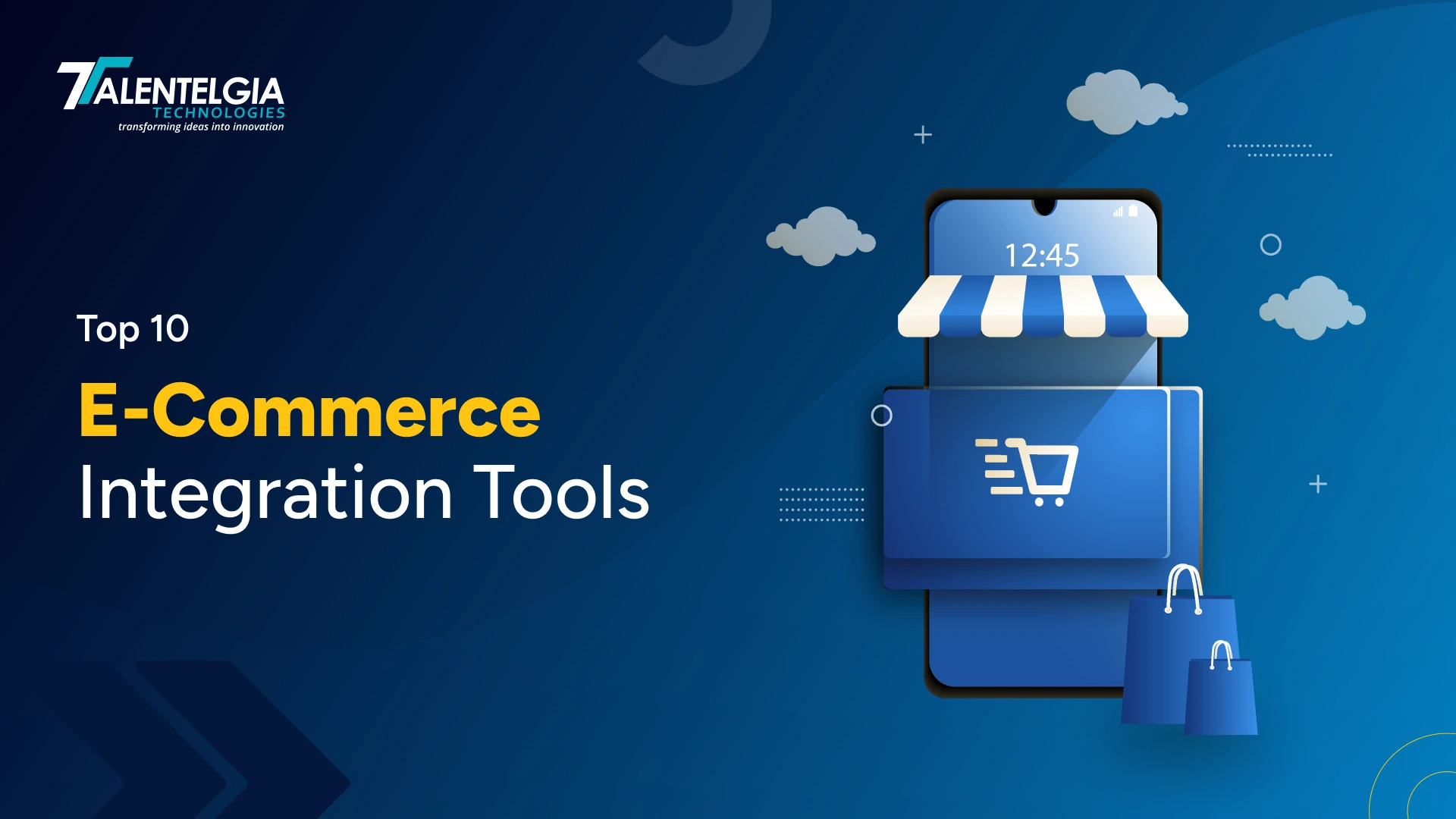

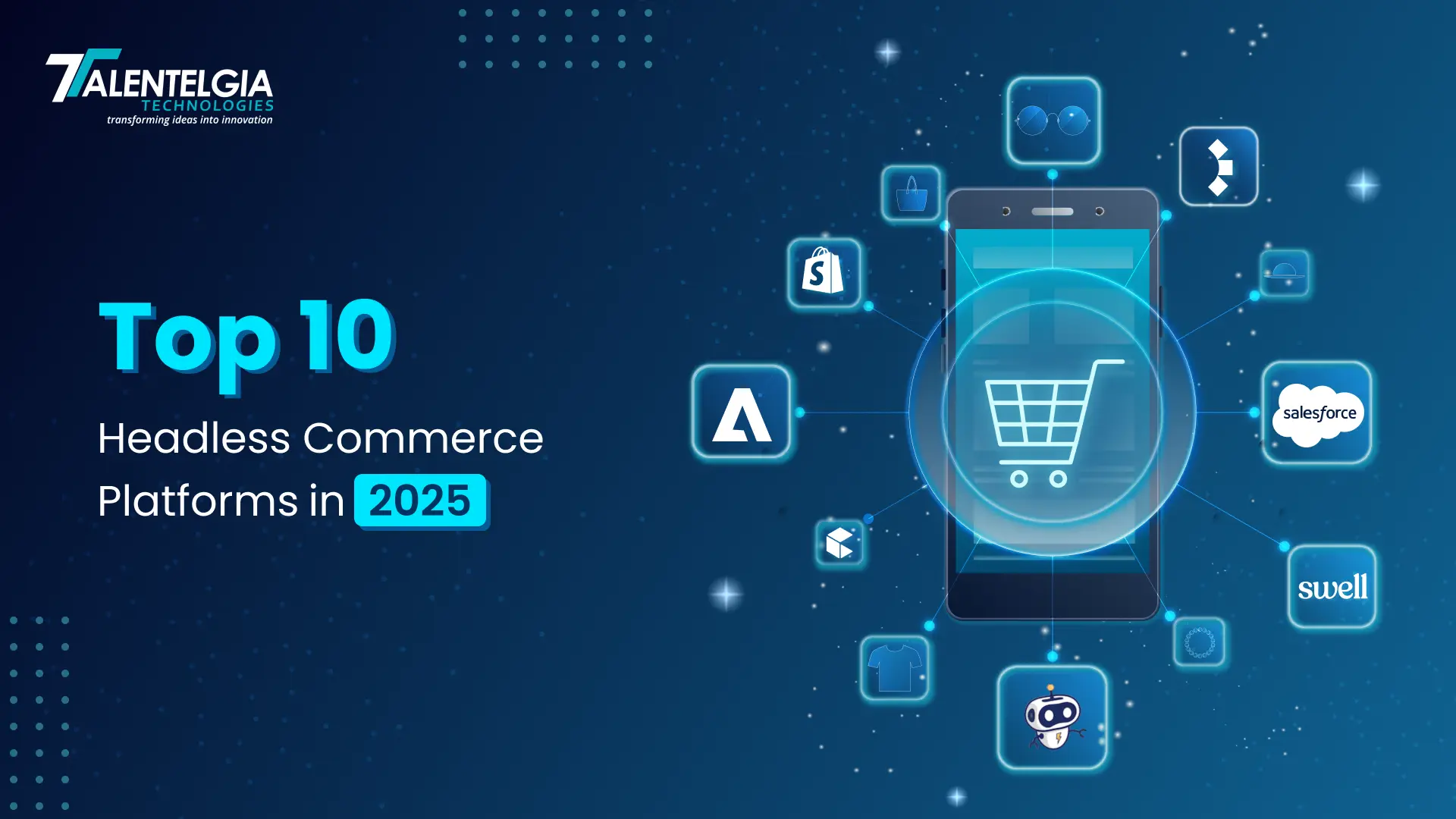


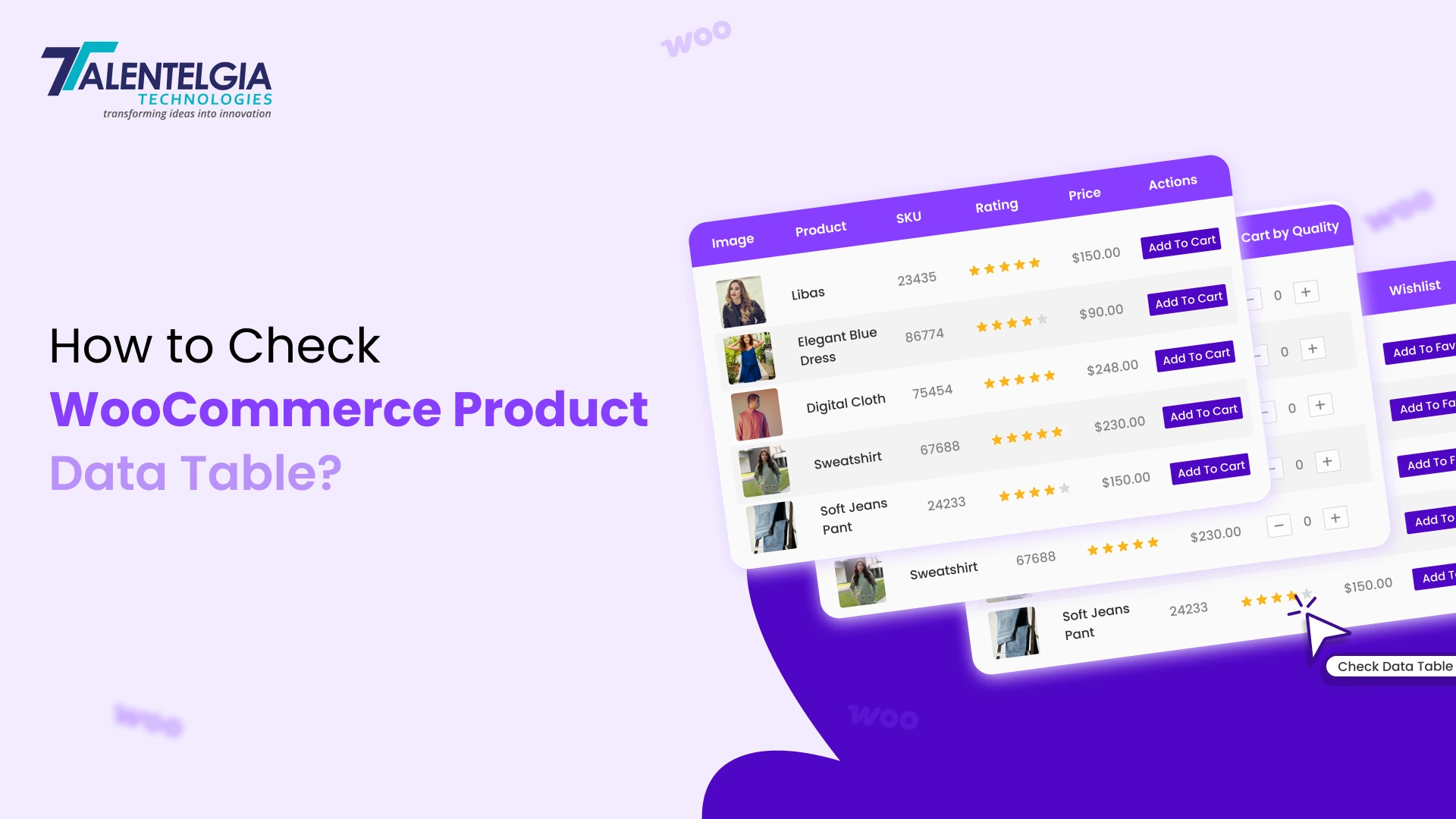











 Write us on:
Write us on:  Business queries:
Business queries:  HR:
HR: 





